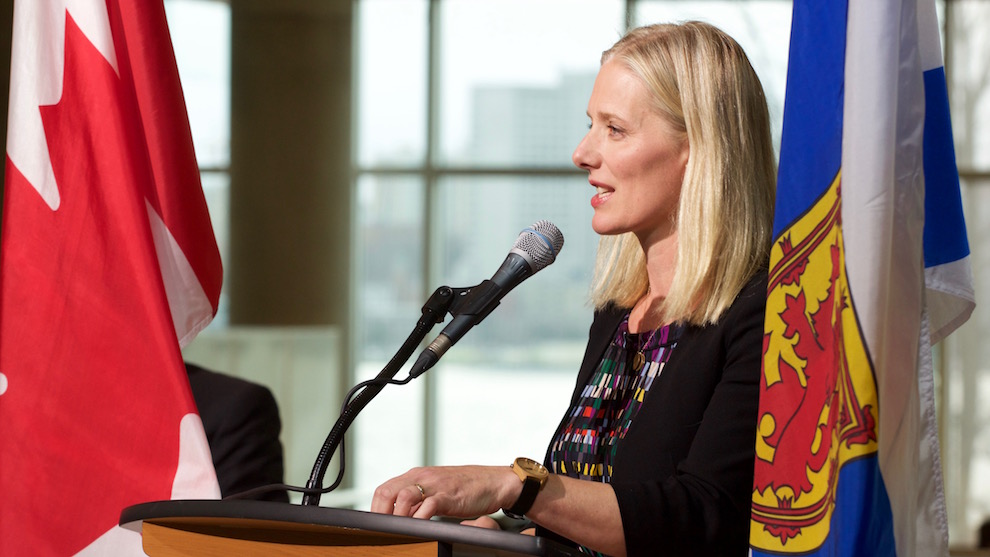Energy
Ottawa deal lets Nova Scotia burn coal beyond 2030
Province specific agreement allows Nova Scotia to exceed 2030 target

caption
Federal Environment Minister Catherine McKenna speaks at the NSCC Waterfront campus on Nov. 21.
caption
Federal Environment Minister Catherine McKenna speaks at the NSCC Waterfront campus on Nov. 21.The federal government is planning to eliminate coal-fired electricity in Canada by 2030, but not in Nova Scotia.
Under an agreement between Nova Scotia and the federal government that was announced Monday, the province will be permitted to follow a unique coal phase-out timeline. This is due to the province’s traditional heavy reliance on coal power plants and what it has done so far to move toward clean energy.
Premier Stephen McNeil said Nova Scotia would still burn coal after the deadline to use on “critical days” where the province “may need extra energy.”
But, as part of the deal, Nova Scotia will have to cut greenhouse gas (GHG) emissions elsewhere to meet the equivalent of closing all coal plants by 2030. The province will also be working to eliminate coal completely within that decade.
McNeil called the agreement a “win-win for Nova Scotia.”
Co-operation for clean energy
Federal Environment Minister Catherine McKenna expressed excitement about collaborating with the provinces and territories to meet national energy goals. She was in Halifax on Monday, after returning from the UN climate change conference in Marrakesh, Morocco.
“We’re coming together to take on this global challenge,” McKenna said during a news conference at the NSCC Waterfront campus. “We owe it to our children and our grandchildren to leave this world better than we found it.”
The federal government’s goal is to increase Canada’s non-GHG emitting energy sources from 80 per cent to 90 per cent by 2030. This coal phase-out is expected to reduce GHG emissions by five megatonnes a year – which is equivalent to taking 1.3 million cars off the road. McKenna said the plan is in line with making Canada a global leader in climate change.
A move to using clean energy is expected to have economic and health impacts, including reducing smog-related asthma, heart and lung diseases, premature deaths and cutting health-care costs.
“This is what prosperity really is,” said MacKenna. “A strong economy but also clean air, green jobs and a competitive business environment.”
The announcement came in advance of a first ministers meeting between the provinces and territories in December to discuss a larger climate change program.

caption
Federal Environment Minister Catherine McKenna shakes hands with NSCC President Don Bureaux.Cap-and-trade
McNeil also announced on Monday the province’s own economic plan to curb GHG emissions by putting a price, or cap-and-trade system, on them.
Cap-and-trade systems set an upper cap on how much pollution can be released into the atmosphere by companies. The trade component creates an economic market for clean energy innovation, as lower GHG emissions mean lower fees for companies, making it economically attractive to pollute less.
No details were given on how the transition to clean energy would impact Nova Scotians’ pocketbooks, but McNeil said he expects it to have “little to no impact,” while also creating more jobs in the clean energy sector.
Regulations for the cap-and-trade system and the new equivalency agreement have not been created yet, but McNeil expects Nova Scotia to be a national leader in renewable energy.
“We can not only continue to reduce (Nova Scotia’s) carbon footprint to zero, but I believe we can help Canada achieve a greater number as we move forward,” he said. “And you can look at Atlantic Canada to lead that.”

m
michael creagen